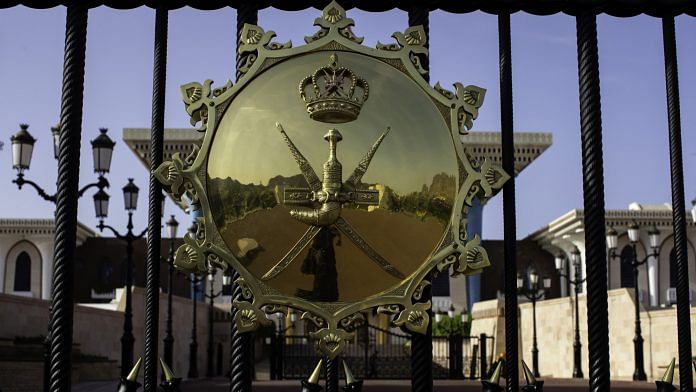The strangest system of royal succession conceived in modern times has been consigned to the trash can after a single use. As part of a thoroughgoing constitutional overhaul announced by Oman’s Sultan Haitham bin Tariq on the first anniversary of his accession to the throne in Muscat, the country now has that standard appurtenance of every Arab palace: a crown prince.
The newly created role of formal heir apparent falls to Dhi Yazan bin Haitham, the sultan’s older son and the minister of culture, sport and youth. The royal decree, read on national TV on Monday, establishes “a specific and stable mechanism for the transfer of power in the sultanate, and the establishment of a mechanism for the appointment of the crown prince, clarification of his duties and powers, and reaffirmation of the principle of the rule of law and the independence of the judiciary as a basis for rule.”
This is enshrined in a new basic law, which guarantees more rights and freedoms for citizens, according to the state news agency ONA. A separate decree creates a new law for Oman’s bicameral parliament.
Details of both decrees are to be published in an appendix that’s expected later this month. But it is hard to imagine anything in the minutiae will match the symbolism and immediate impact of the succession’s big reveal.
Under the previous dispensation, the reigning Omani monarch nominated an heir via a sealed letter, to be opened upon his death — but only if his extended family couldn’t reach a consensus over a successor. That mechanism, created decades ago by the long-reigning Sultan Qaboos bin Said, was short-circuited upon his death last year: The family simply skipped the process of consensus-building and unsealed the envelope, revealing that Qaboos, who had no children of his own, had picked his cousin Haitham.
Now Haitham has dispensed with the drama. Dhi Yazan’s annointment leaves no room for the fervid speculation over succession that characterized the final years of Qaboos’s five-decade reign. The parlor game may be missed by some, but it is a safe bet that most Omanis will welcome the transparency that comes with having a crown prince.
An open succession plan will also reassure Oman’s allies and foreign investors by making Omani politics more predictable, and more like other Gulf Arab states.
The announcement of a crown prince is the logical next step in the devolution of the sultan’s powers. Whereas Qaboos had concentrated control in his own hands — he was also minister of finance and foreign minister — Haitham has been passing on authority to others. He named foreign and finance ministers last summer, and widened the circle of decision makers in his court and cabinet. These changes indicate Haitham has fewer concerns than Qaboos did about potential challenges to the sultan from other senior positions in the government.
More important, the devolution of power should allow for quicker decision-making as Oman confronts its stiffest economic challenges in a generation. The International Monetary Fund is projecting a 10% shrinkage in the country’s real GDP, the steepest decline among the members of the Gulf Cooperation Council. Oman’s credit is categorized as junk by the major rating agencies, which means it will struggle to plug the region’s widest budget deficit by tapping debt markets.
This is not the most promising backdrop for Haitham’s goal of bringing the sultanate’s finances in order. Or for unpopular, if necessary, impositions on the population, such as a value-added tax (coming in April) and the reduction of power and water subsidies (starting this month).
If Haitham’s first year on the throne was bedeviled by the impact of the coronavirus pandemic, his second is unlikely to provide much breathing room. Weak oil prices will be a constant reminder of the need to wean the Omani economy from its overwhelming dependence on a single commodity, a task made that much harder by increasingly fierce competition for investment and bond issuance across the GCC.
For now, the sultan can only hope that the prospect of more rights and freedoms, and transparency about the monarchy’s future, will give his subjects some cause for optimism about their own.- Bloomberg
Also read: How Qatar has got out of the Gulf embargo with a much stronger hand



